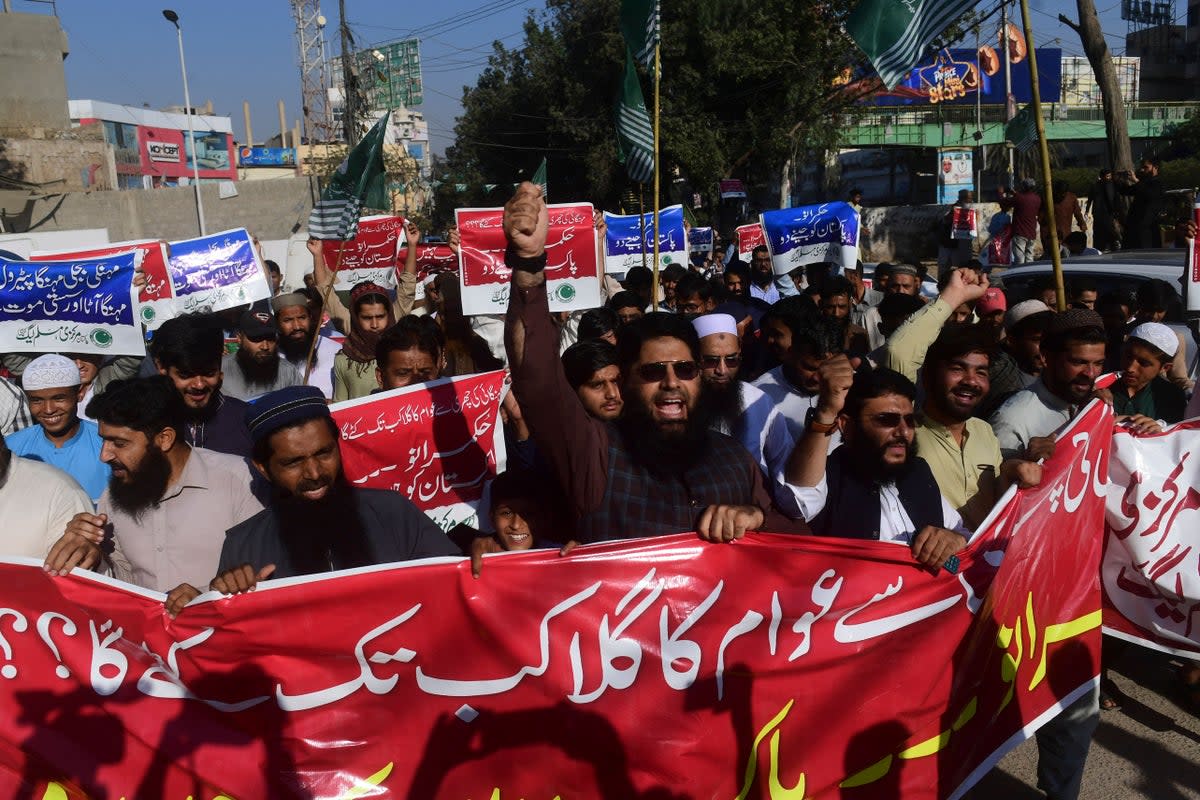Pakistan has effectively already defaulted, says defence minister: ‘It is a bankrupt country’

Pakistan is a “bankrupt country” that has already defaulted, said the country’s defence minister who blamed bureaucracy and politicians for the economic crisis.
The South Asian nation is embroiled in one of the worst economic crises since its independence, with the country’s forex reserves falling to the lowest in 10 years, barely enough to cover three weeks of imports.
In the week ending 3 February, the central bank’s foreign currency reserves shrank to $2.917bn, down $170m from the previous week.
Pakistan is in talks with the International Monetary Fund, as it pursues deals to keep the cash-strapped economy afloat.
“You must have heard that Pakistan is going bankrupt or that a default or meltdown is taking place,” said Khawaja Asif while addressing the public in his hometown Sialkot.
“It (default) has already taken place. We are living in a bankrupt country.
"The solution to our problems lies within the country. The IMF does not have the solution to Pakistan’s problems," the defence minister while slamming the authorities for their disregard for the country’s constitution which has led to economic instability.
Defence Minister of Imported govt admits that Pakistan is already in default. In 10 months they have brought Pak to this sorry state - Shameless lot selling out the country & holding on to power instead of letting nation choose their ldrs thru elections. pic.twitter.com/IHbREnbAhK
— Shireen Mazari (@ShireenMazari1) February 18, 2023
Pakistan could not reach a deal with IMF earlier this month and a visiting IMF delegation departed Islamabad after 10 days of talks, but said negotiations would continue. Pakistan is in dire need of funds as it battles the economic crisis.
"Duration (of the talks) cannot be confirmed but we intend to wrap these up at the soonest," finance secretary Hamed Yaqoob Sheikh had told Reuters last week.
Talks centred around reaching an agreement on a reforms agenda under the country’s $6.5bn bailout programme, which it entered in 2019. An agreement on the ninth review of the programme would release over $1.1bn.
Meanwhile, inflation in Pakistan could average 33 per cent in the first half of 2023 before trending lower, and a bailout from the International Monetary Fund alone is unlikely to put the economy back on track, a senior economist with Moody’s Analytics told Reuters last week.
"Our view is that an IMF bailout alone isn’t going to be enough to get the economy back on track. What the economy really needs is persistent and sound economic management," senior economist Katrina Ell said.
"There’s still an inevitably tough journey ahead. We’re expecting fiscal and monetary austerity to continue well into 2024," she added.
Additional reporting from the wires
